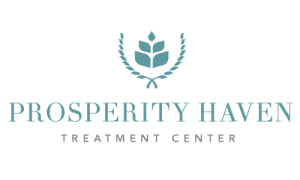Prosperity Haven’s
Partial Hospitalization Program,
Cleveland
Providing Cleveland Ohio with quality partial substance abuse rehabilitation.

What is a Partial Hospitalization Program (PHP)?
Partial Hospitalization for substance abuse refers to a full-day rehab program that takes place in a medical facility, where the patient can leave once the day’s treatment is over. PHP often follows residential inpatient treatment and helps clients transition back to their everyday routines while continuing to build, develop, and practice the life and recovery skills they learned in drug and alcohol rehab. For a patient who no longer requires residential inpatient treatment, a Partial Hospital Program is an intensive outpatient care choice that offers the option to go home or to a structured sober living house. With this in mind, at Prosperity Haven we welcome clients in our PHP to stay in our men-only facility based on availability.
In Partial Hospitalization, patients continue to address the roots of their addiction and build strategies that help make their recovery as sustainable as possible. PHP offers a great way to transition from inpatient care to a more independent lifestyle, while still receiving the support and guidance necessary to stay on track with recovery.
How long is PHP?
At Prosperity Haven, our PHP runs six days per week, five hours a day. It is a short-term treatment program, expected to last for several weeks, depending on the severity of your case, the suitability of your home environment, and the speed of your progress.
What Happens in PHP?
The program is designed to reinforce:
- Healthy coping skills
- Trigger avoidance
- Relapse prevention techniques
The program includes a combination of:
- Individual substance abuse counseling
- Life skills workshops
- Group and family therapy sessions
- Participation in our holistic-based recovery services
- Dual-diagnosis treatment (if applicable)
Like with our inpatient program, PHP involves intensive treatment, evidence-based therapy, mental health services (if necessary), and holistic experiences with small groups of male clients. This allows us to make sure everyone in treatment at Prosperity Haven is given a safe, non-judgmental space where they can continue to work on their recovery with the support of their peers, whether they choose to continue living in a structured rehab environment or not during this time.

YOUR NEW BEGINNING STARTS HERE
YOUR NEW
BEGINNING
STARTS HERE
Take the First Step and Reach Out Today
Why PHP With Prosperity Haven?
At Prosperity Haven, we believe in giving clients access to an addiction rehab structure that guides them through each stage of recovery at their own pace, allowing for more freedom and independence with each step they take. We use a step-down approach to our continuum of care, beginning with Drug and Alcohol Detox and Inpatient Residential treatment. Once clients are ready to leave our residential treatment center, we help them transition into a less involved level of care — a Partial Hospitalization Program. Our Intensive Outpatient Program is the next step after PHP.
The Benefits of Our Partial Hospitalization Program
As you begin this new stage of our addiction treatment program, we’ll still be providing you with the same level of care and commitment at every point in your recovery process. During our Partial Hospitalization Program, you’ll grow towards becoming fully independent by:

Continuing your individual therapy
In our Residential Inpatient unit, you spend significant time identifying and working through the issues that influence your substance abuse. PHP allows you to continue developing strategies to manage these factors and any accompanying mental health conditions in a healthy way to make your recovery last. Popular therapy options include cognitive behavioral therapy.

Taking part in life skills workshops
As you become more independent outside of rehab, it becomes more important that you have a comprehensive recovery toolkit, and that you can use practical skills when you need them in your life. In PHP, we continue to help you expand your recovery-related skills, as well as basic functional skills.


Attending group meetings
A component of our Partial Hospitalization services is the support groups. These help solidify the bonds you’ve built with your peers in recovery and keep you accountable as you begin enjoying more freedom. The brotherhood that forms here will provide you with an incredible support system for your life after rehab.


Participating in family therapy
PHP also allows the continued opportunity to engage in family recovery meetings, which serve to continue mending relationships and strengthening your support network.


Experiencing holistic therapies
We believe in healing the mind, body, and spirit. In PHP, you’ll continue to engage in fellowship building activities, mindfulness exercises, and other group-oriented activities focused on restoring balance to your life.


Continuing your individual therapy
In Residential Inpatient, you spend significant time identifying and working through the issues that influence your substance abuse. PHP allows you to continue developing strategies to manage these factors in a healthy way to make your recovery last.



Taking part in life skills workshops
As you become more independent outside of rehab, it becomes more important that you have a comprehensive recovery toolkit, and that you can use practical skills when you need them in your life. In PHP, we continue to help you expand your recovery-related skills, as well as basic functional skills.


Attending group meetings.
These will help to solidify the bonds you’ve built with your peers in recovery and keep you accountable as you begin enjoying more freedom. The brotherhood that forms here will provide you with an incredible support system for your life after rehab.


Participating in family therapy.
PHP also allows the continued opportunity to engage in family recovery meetings, which serve to continue mending relationships and strengthening your support network.


Experiencing holistic therapies.
We believe in healing the mind, body, and spirit. In PHP, you’ll have the option to continue to engage in group activities and naturopathic therapies like meditation, mindfulness exercises, and more
Confidential Insurance Verification
Complete the form below to find out if you have health insurance coverage
At Prosperity Haven, we work with many insurance providers to ensure you get the care you need. Our dedicated admissions team will review your insurance plan and help you access the maximum amount you are entitled to. By providing your phone number you agree to be contacted by a member of our treatment team via call/text.
Planning Life After Rehab
Although case managers must start working with individual clients from the very beginning of their time at Prosperity Haven, any time clients step down from one level to another, their work with their primary care manager is even more vital. In aftercare discharge planning, case managers help clients map out their lives after treatment, including living arrangements, career development, and ensuring they can transfer the skills they learned in treatment into a daily routine.
What if PHP Isn’t Right for You?
PHP can be a great way to recover, but it isn’t always the right fit. Some people’s addiction is too severe, the toll on their daily life too great, or their home environment too unhealthy for it to work.
Such patients aren’t failures and we don’t just give up on them. We may transfer them to residential inpatient treatment instead so that they can get the help they need. If you aren’t sure if PHP is enough for you or a loved one, or if you are settling for PHP because of pressure from home or work to avoid inpatient treatment, please contact us below.
Partial Hospitalization Program in Cleveland, Ohio
When looking for a Partial Hospitalization Program near Cleveland, we know how important it is that you find a rehab where you’ll be with like-minded individuals in an environment that fosters healing and compassion. Whether you’re joining PHP as your first step in rehab or you’ve been with us since detox, you can rest assured you’ll receive compassionate treatment from addiction counselors, licensed therapists, mental health professionals, social workers, and case management specialists who make your recovery their top priority.
At Prosperity Haven, our supportive healthcare professionals are here to help you break free from the grips of substance abuse. If you or a loved one are struggling with drug or alcohol addiction, a partial hospitalization program could be for you. Contact us to find out more.
Message us with your questions
Complete the Form Below and We Will Get Back To You
"*" indicates required fields






